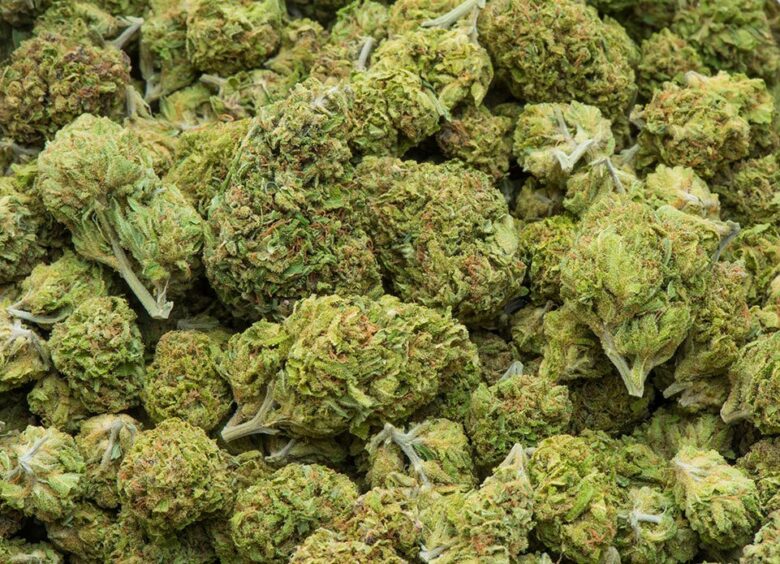Medical cannabis has become an increasingly popular alternative treatment option for a variety of conditions, and the global medical market is projected to continue growing rapidly over the next few years, forecasted to reach a $27b market value by 2028. European countries like Germany, the United Kingdom, and Poland are among the largest markets for medicine outside North America, and they also have the potential to become major players in the medical export industry out of Africa.
Germany, the largest market for medical cannabis in Europe, imported more than 10,700 kg of medical flowers in 2021 alone, and the country is expected to import more than 32,000 kg of medical cannabinoid products by the end of 2024. This presents a significant opportunity for companies looking to import cannabis to Germany.

Source: adf.org.au
The United Kingdom is also a major market for medical products, with the country importing more than 2,000 kg of medical cannabinoids in the first quarter of 2021. While the UK’s industry is still in its early stages, the country has already started to explore the potential of sourcing medical cannabis from Africa. In 2020, the UK signed an agreement with Lesotho, a small African country with a favorable climate for cannabis cultivation, to import medical cannabinoid products.
Poland is another European country with significant potential in the medical cannabis market. The country legalized medical cannabis in 2017, and it is currently the largest market in Central and Eastern Europe. Poland’s medical industry is still in its early stages, but the country has already started to explore the potential of importing medical cannabinoid products from Africa.
African countries looking to export cannabis have several factors in their favor. First and foremost, the ideal climate for cannabis cultivation means that African growers have the potential to produce high-quality products at a lower cost than growers in other regions. In addition, many African countries have a long history of cultivation and have the expertise necessary to produce top-quality products.

Source: substanceei.com
Such a country is the Kingdom of Lesotho in the heart of South Africa, where the cannabis cultivation sector has experienced significant growth in recent years, thanks in large part to the country’s favorable climate for cultivation and progressive regulatory environment for exportation. The Lesotho government was one of the first in Africa to legalize the cultivation and production of medical products, and the establishment of a clear regulatory framework has provided a stable and supportive environment for the growth of the industry. As a result, numerous international cannabis companies have established operations in Lesotho, making it a major player in the global market. With the potential for increased international demand for medical cannabinoid products, the sector is poised for continued growth in the coming years.
There are also some challenges that African countries will need to overcome in order to successfully enter the medical cannabis export industry. One of the biggest challenges is regulatory compliance, as European countries have strict regulations governing the import and sale of medical cannabinoid products. African countries will need to work closely with European regulators to ensure that their products meet all necessary requirements.
Cannabis genetics have been a crucial factor in the cultivation of high-quality plants around the world. For many years, countries such as the United States, Canada, and the Netherlands have been at the forefront of cannabis genetics, with many of the world’s most popular strains originating from these regions. However, in recent years, African genetics have gained a reputation for their unique characteristics and high quality.

Source: timesunion.com
One of the reasons for the growing reputation of African genetics is the continent’s rich history with cultivation. Cannabis has been cultivated in Africa for thousands of years, and the continent is home to a wide variety of landrace strains, which are strains that have developed naturally in their native environment without any human interference. Landrace strains are highly sought after by breeders as they have unique characteristics that cannot be found in hybrid strains.
African landrace strains have gained a reputation for their resilience and potency. These strains have been grown in harsh conditions and have developed a natural resistance to pests and diseases. This resilience makes them ideal for outdoor cultivation in regions with hot and dry climates.
Another factor contributing to the reputation of African cannabinoid genetics is the diversity of strains found on the continent. Each region of Africa has its own unique strains, and these strains have distinct flavors and aromas that cannot be found anywhere else in the world. For example, strains from West Africa have a distinct spicy aroma, while strains from East Africa have a sweet and floral aroma.
So, which nations import cannabinoid products from Africa? Many nations around the globe, including Canada, Israel, and several EU member states, have legalized it. The import of medical cannabinoid is governed by particular laws in a number of these nations, including the Netherlands, Germany, and Italy. Medical cannabinoid products are produced in accordance with stringent EU-GMP pharmaceutical standards in order to be sold in European marketplaces. Patients are permitted to import a certain quantity of flowers into Canada for their own personal medical use. With a special permit, patients in Israel can transport medicinal cannabinoid based products. In the Netherlands, patients are not subject to penal prosecution for possessing up to 5 grams of the plant.

Source: timesunion.com
Additionally, the possession of modest quantities of cannabis for personal use has been made legal in a number of European Union member states. These nations include Belgium, Portugal, and Spain. Furthermore, Switzerland permits the personal holding of up to 10 grams of the cannabinoid-based substance.
Worth mentioning, that the only nation in Europe that presently permits both the import of cannabis for medical and recreational reasons is the Netherlands. This is so because cannabinoid and other soft substances are tolerated in the Netherlands. Small-scale ownership or use is not punishable by law in the Netherlands. The Dutch government does allow the possession and use of small quantities of cannabinoid, but it should be noted that it does not support the trafficking of illicit drugs. As a result, those who try to bring large amounts of cannabis into the Netherlands risk legal action. As previously stated, other nations in Europe have cannabis laws that are much stricter.
Additionally, the possession of modest quantities of the flower for personal use has been made legal in a number of European Union member states. These nations include Belgium, Portugal, and Spain. Furthermore, Switzerland permits the personal holding of up to 10 grams of cannabinoid substance.

Source: benefitscanada.com
To conclude, we see the growing reputation of African genetics has led to an increased interest in the continent’s industry. International companies are now looking to partner with African growers to develop new strains and capitalize on the unique characteristics of African genetics. This is creating economic opportunities for African farmers and helping to drive innovation in the cannabis industry.
